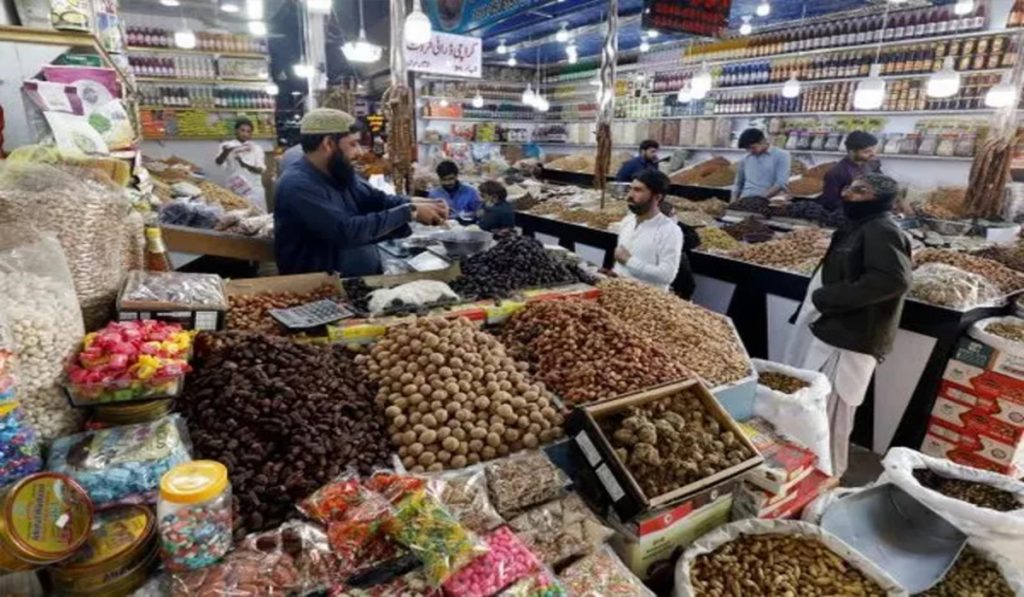Islamabad: Inflation has cast a sombre tone over Eid festivities across Pakistan. Traditionally a time of joy, celebration, and generosity, this year’s Eid is marked by subdued spirits as rising prices deter people from indulging in customary shopping and feasting.
The high cost of essential goods and services has strained household budgets, leaving many families unable to afford new clothes, gifts, and special Eid treats.
Abbu Sufiyan, a resident in Karachi said, “Upon inquiring about the prices of the products I wished to purchase, I was dismayed to find that they were beyond my budget. Slippers, for instance, are now priced between Pakistani Rupees (PKR) 1,500 and PKR 2,000 per pair, a significant increase from their previous range of PKR 700 to PKR 800.”
He further said, “This inflation has made shopping inaccessible for individuals like myself, despite earning a monthly income of Rs 60,000. It is disheartening to imagine the challenges faced by those with lower incomes.”
Aftab Ahmed, another resident said, “The prevailing inflationary pressures have significantly burdened people, making life increasingly challenging. The current situation across the country is concerning, with the prices of everyday essentials, from slippers to clothing, skyrocketing”.
He added, “I earnestly urge the Prime Minister to consider reducing the price of petrol, as it would alleviate some of the financial strain on individuals and enable them to partake in shopping activities during the Eid festival.”
This economic strain not only dampens the festive atmosphere but also exacerbates financial stress for already struggling individuals and communities.
Rashid, a local businessman said, “The business is not performing well, experiencing a notable uptick only during the last week of Ramzan.
Compared to last year, business is slower. There’s a prevailing sentiment that the government prioritizes its own interests over the welfare of businesses and the general populace.”
Zeeshan, another shopkeeper said, “High inflation has dampened the market’s allure. Traditionally bustling during festival seasons, it now witnesses a noticeable decline in activity. Many individuals find themselves unable to afford new products amidst these economic challenges”.
Soaring inflation dulls Eid festivities across Pakistan
